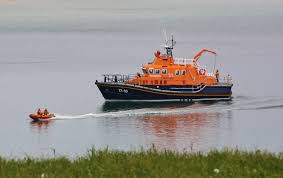Understanding the RNLI: Lifesavers of the Sea

The Importance of the RNLI
The Royal National Lifeboat Institution (RNLI) is a vital charity dedicated to saving lives at sea in the United Kingdom and Ireland. Founded in 1824, the RNLI operates 24 hours a day, 365 days a year, with an aim to provide immediate assistance to those in peril on the water. Their presence is crucial, especially in a country with a rich maritime history and extensive coastline.
Recent Developments
In recent months, the RNLI has faced unprecedented challenges due to the rising number of incidents on the water, particularly during the summer months of 2023. The charity reported a 20% increase in call-outs compared to the previous year, attributed to factors such as an uptick in recreational boating and unpredictable weather conditions. As a response, the RNLI has expanded its training programmes for volunteers and increased public awareness campaigns about maritime safety.
In July 2023, the RNLI launched a new initiative titled ‘Respect the Water’, aimed at educating the public on the dangers of open water swimming, boating, and the importance of following safety guidelines. This campaign has been supported by various local councils and educational institutions, highlighting the RNLI’s commitment to not just rescue operations but also preventative measures.
Community Involvement and Volunteer Support
Volunteer support has always been the backbone of the RNLI, with around 95% of its financial resources coming from donations and fundraising activities. As the demand for lifeboat services grows, so does the necessity for community involvement. The RNLI encourages local communities to participate in fundraising events, such as beach clean-ups and charity runs.
Recently, their ‘SOS Day’ raised significant funds for training new crew members and maintaining lifeboat stations, showcasing a remarkable community spirit and commitment to sea safety. Furthermore, the RNLI has started to incorporate technology into their operations, with advancements in lifeboat designs and communication systems that enhance rescue capabilities.
Conclusion
The RNLI remains a critical component of maritime safety in the UK and Ireland, with its operations becoming increasingly important as water-based activities grow. Their dual role in rescue and prevention underscores the significance of education in reducing accidents. As challenges evolve, the RNLI’s proactive approach in community engagement, technological integration, and training ensures they will continue to save lives at sea well into the future.
